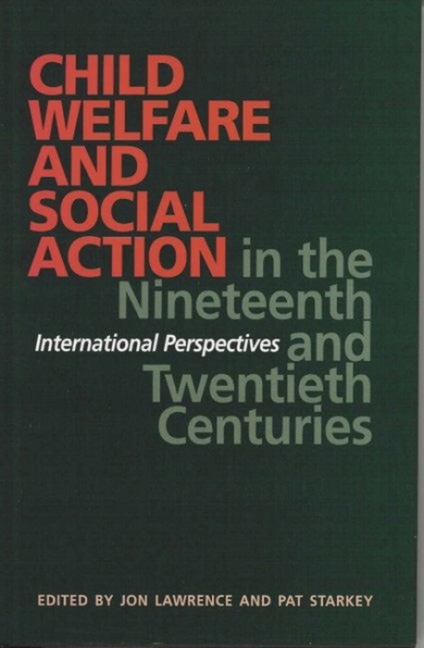Book contents
- Frontmatter
- Contents
- Acknowledgements
- Introduction: Child Welfare and Social Action
- I Gender and ‘Delinquency’
- II Child Emigration
- III Rethinking Philanthropy
- 7 From Barrack Schools to Family Cottages: Creating Domestic Space for Late Victorian Poor Children
- 8 The Campaign for School Meals in Edwardian Scotland
- 9 ‘Blood is Thicker than Water’: Family, Fantasy and Identity in the Lives of Scottish Foster Children
- IV ‘Welfare States’ and Child Welfare
- Notes on Contributors
- Index
9 - ‘Blood is Thicker than Water’: Family, Fantasy and Identity in the Lives of Scottish Foster Children
from III - Rethinking Philanthropy
- Frontmatter
- Contents
- Acknowledgements
- Introduction: Child Welfare and Social Action
- I Gender and ‘Delinquency’
- II Child Emigration
- III Rethinking Philanthropy
- 7 From Barrack Schools to Family Cottages: Creating Domestic Space for Late Victorian Poor Children
- 8 The Campaign for School Meals in Edwardian Scotland
- 9 ‘Blood is Thicker than Water’: Family, Fantasy and Identity in the Lives of Scottish Foster Children
- IV ‘Welfare States’ and Child Welfare
- Notes on Contributors
- Index
Summary
Breaking and Making Families
In his recent and illuminating study of the family, John Gillis has argued that ‘we must recognise that families are worlds of our own making’. Today, the family we live by in western society is a mythical, idealised creation vested with profound symbolic importance. The family is assigned to do the emotional work once carried out by other institutions and thus it has become a totem of our identity. This process has proceeded apace since the early nineteenth century and perhaps nowhere is the construction of the family as a fulcrum of identity, emotion and belonging more stark than in Scotland. Here, several waves of rural depopulation, urban transformation and industrial growth and decline have had a profound impact on family forms, causing an exceptionally high degree of family dislocation and reconstitution. The Scottish family has been a flexible institution, expanding, contracting and transmogrifying in response to economic and social upheaval. And at the heart of the family's attempts to make and re-make itself are children, who represent the future and the promise of a family's eventual survival.
At the beginning of the twenty-first century the concept of the blood family has assumed great importance, both in popular discourse and in the policies pursued by child welfare professionals. There are a number of reasons for this. Demographic changes, especially since the Second World War, have accelerated the formation of the self-contained or ‘nuclear’ family. Declining mortality rates have left fewer orphaned children; rising economic prosperity and, more importantly, the development of a comprehensive welfare safety net has reduced the need for children to be placed in substitute families.
Medical advances in the treatment of infertility have also contributed to the obsession with blood over water. Moreover, economic trends have accelerated the demise of the household containing kin and strangers such as servants, lodgers and apprentices. From the perspective of social policy, the predominant trend since the late 1970s has been to make every effort to keep families together; the removal of children from their blood parents and their placement with a foster or adoptive family is an action of last resort. Accompanying the defence of the birth family has been the recognition that children placed in substitute families need information on their biological and sociological background in order for them to complete their self-image, their identity.
- Type
- Chapter
- Information
- Publisher: Liverpool University PressPrint publication year: 2001



